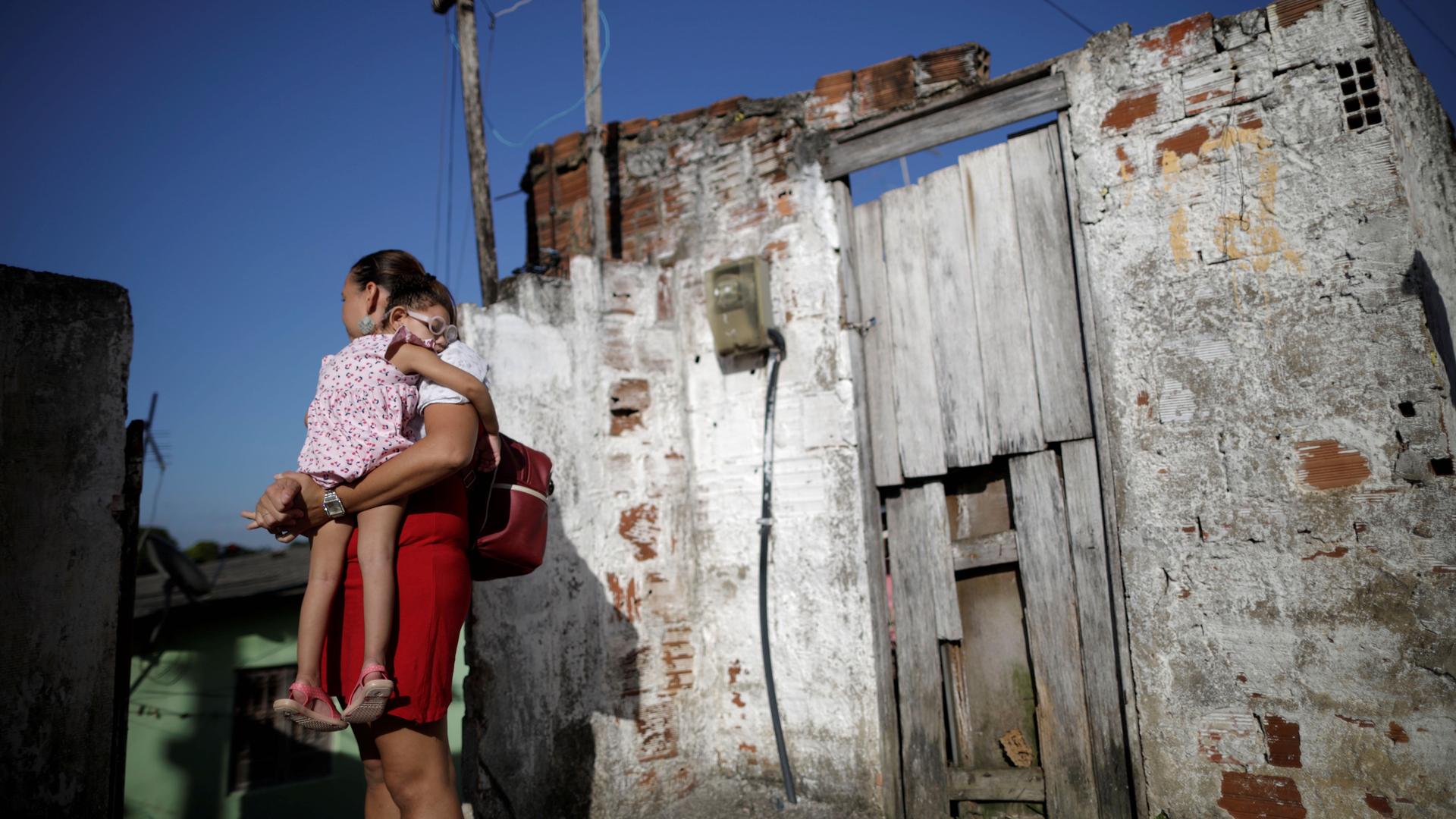When COVID-19 first arrived in Brazil, Germana Soares was concerned about how it would interact with other health issues in her community.
“I thought there would be a lot of deaths,” she said. “We have a very high number of deaths of children from respiratory infections. And we were all very concerned because COVID[-19] also acts in that area.”
Related: Brazil’s wetlands ravaged by out-of-control wildfires
Soares is the founder and director of UMA, the Union of Mothers of Angels, an association of 431 mothers of children with Zika-induced microcephaly in the Brazilian state of Pernambuco. Zika is the mosquito-borne virus that exploded across Latin America in 2015. It hit Brazil particularly hard. Thousands were diagnosed with Zika.
Soares’ son Guilherme was one of nearly 2,800 babies who were born with microcephaly in 2015. It motivated her to start the group.
Microcephaly is a birth defect where a baby’s head is smaller than normal. It carries a host of developmental disorders. The children have a hard time holding themselves up, moving, communicating or even eating solid food. They also have respiratory issues.
As COVID-19 gripped Brazil, the UMA mothers stayed home and did their best to protect their families. Soares says that “miraculously” only one child in her group died — and that baby already had a series of other health issues.
But everyone’s been affected. Under normal circumstances, most of the children get help from speech, occupational and physical therapists daily. But all that support was all suspended due to the COVID-19 pandemic.
“This has really set the children back because everything that had been achieved was thrown into the trash. Today, more than 80% of the therapies have still not started. I think only some of the private ones are running.”
“This has really set the children back because everything that had been achieved was thrown into the trash,” Soares said. “Today, more than 80% of the therapies have still not started. I think only some of the private ones are running.”
Related: Brazil’s Indigenous peoples fight COVID-19 in their territories amid government neglect
Soares’ son Guilherme has a light case of microcephaly. He is able to say some things, but according to his mom, without his speech therapist, he’s now having a hard time. He’s forgotten his colors. He’s confusing his numbers. Most of his words are now garbled and hard to understand.
Others are much worse off.
Jaqueline Vieira’s son Daniel just turned 5. She talks to him about his birthday in a video she shot last week and sent to The World. In the video, Daniel is propped up on pillows. He wears a diaper. He’s finishing a meal through a feeding tube connected to his stomach. His fists are closed, his arms tight and folded against his body.
“COVID[-19] was very hard,” she said, “because Daniel was developing a lot. And then he was shut inside for seven months. So now he doesn’t open his arms anymore. When you stretch out his legs, he cries. He got a lot worse.”
The mothers receive a monthly stipend of roughly $200 to care for their children with disabilities. The public therapists, when they are working, come through Brazil’s state universal health care system. But beyond that, the mothers say they’ve been left out to dry by the government.
“Five years since these children were born and nothing has changed,” said Ingrid Adrielly, the mother of 4 1/2-year-old Emmanuelly. “We don’t have support for anything. And it just got worse under this pandemic. No one called to see how we were doing. They don’t care about these children.”
Related: Brazil’s Indigenous communities suffer grave losses from coronavirus
Zika is a virus that overwhelmingly plagues low-income communities with open sewers and poor sanitation — breeding grounds for Aedes aegypti, the mosquito that carries Zika, dengue and chikungunya. The mothers blame the Brazilian state for the lack of adequate housing and sanitation.
“We are women, Black, and poor from the slums and who already lived in precarious situations,” Soares said. “And with the arrival of these children with disabilities, which was an error of the Brazilian state, and irresponsibility of public health, this made these women even more vulnerable than before.”
The mothers say society discriminates against them and their children. Some related tales that they were even blamed for their children’s infections as if it was their fault. The pandemic made it worse.
“These populations who already faced difficult circumstances, were double victims. Because on top of being victims from COVID-19, like all of society, they were also victims of social exclusion, which makes them even more vulnerable.”
“These populations who already faced difficult circumstances, were double victims,” said Tereza Lyra, a doctor and a researcher at Fiocruz, Brazil’s top public health research institute. “Because on top of being victims from COVID-19, like all of society, they were also victims of social exclusion, which makes them even more vulnerable.”
Related: Brazilian housing movements fight surging evictions amid coronavirus
Zika hasn’t gone away. There were 3,692 new suspected cases in Brazil during the first six months of the year. The hundreds of new cases prompted Human Rights Watch to call on Brazilian authorities to improve sanitation and provide greater reproductive rights. A new strain of the Zika virus was discovered in June, causing concerns that another outbreak could be on the horizon.
But the UMA mothers say they will fight for their children no matter the cost, with or without the Brazilian state.
“My life changed a lot after Emmanuelly came into my life,” Adrielly said. “I learned to fight. Not to give up on my rights and the rights of my child. Because, since she could not walk or talk, I would be walking and talking for her. And fighting, alongside my sisters in struggle, for the rights of our children.”
